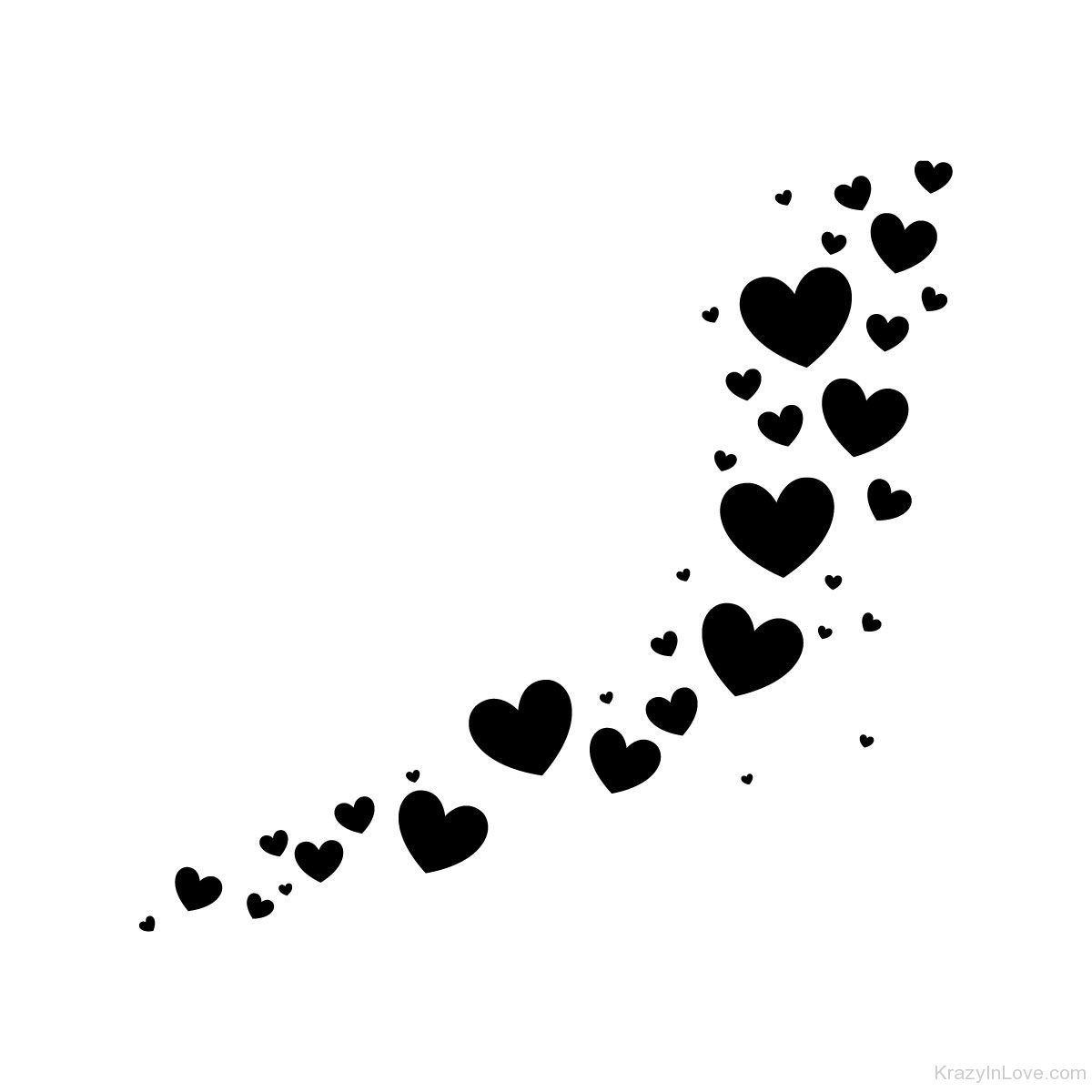Little Hearts: A Heartfelt Journey Into The World Of Tiny Hearts
So, let's talk about little hearts, shall we? You know, those tiny powerhouses that keep life going from the moment we're born. It's kinda crazy to think about how these lil' organs work tirelessly every single second of our lives. And guess what? They don't get paid overtime! But seriously, understanding little hearts—whether it's your own or someone you love—is crucial for leading a healthy life. So buckle up, because we're diving deep into the world of tiny hearts and uncovering some seriously cool stuff.
Now, you might be wondering why we're focusing on little hearts today. Well, it's simple. These bad boys (and girls) are the foundation of our entire circulatory system. They pump blood, deliver oxygen, and basically keep us alive. If you think about it, they're kinda like the superheroes of our bodies, but without the capes. And hey, who doesn't love a good superhero story?
Before we dive deeper, let me just say this: taking care of little hearts isn't just about staying healthy—it's about living life to the fullest. Whether you're a parent, a caregiver, or simply someone who cares about their own well-being, understanding little hearts can make a world of difference. So grab a snack, get comfy, and let's explore this topic together.
- Selbys Tropical Food Market Your Ultimate Destination For Exotic Delights
- Exploring The Trails Of Katy Community Center Your Ultimate Guide
Understanding Little Hearts: The Basics
Alright, let's start with the basics. What exactly are little hearts, and why are they so important? Simply put, little hearts are the hearts of babies, toddlers, and young children. They're smaller in size compared to adult hearts, but they pack a serious punch. Despite their size, these lil' organs work just as hard—if not harder—to keep their tiny owners alive and thriving.
How Little Hearts Work
Here's the deal: little hearts function pretty much the same way as adult hearts, but on a smaller scale. They have four chambers, valves, and a whole bunch of blood vessels that make sure everything runs smoothly. The left side pumps oxygen-rich blood to the body, while the right side sends oxygen-poor blood to the lungs for a quick refresh. It's like a mini factory working non-stop, and honestly, it's kinda mind-blowing.
And let's not forget about the electrical system. Yeah, you read that right—little hearts have their own built-in electrical system that keeps them ticking. This system sends signals to the heart muscle, telling it when to contract and relax. Without it, the heart wouldn't know when to pump, and that's just not cool.
- Smash Room Scranton Pa The Ultimate Guide To Smash And Stress Relief
- Vape Transformers The Ultimate Guide To Revolutionizing Your Vaping Experience
Why Little Hearts Matter
So, why do little hearts matter so much? Well, they're basically the foundation of life itself. Without a healthy little heart, a child's growth and development can be seriously affected. Imagine trying to run a marathon with a faulty engine—it's just not gonna happen. That's why it's crucial to pay attention to little hearts and make sure they're in tip-top shape.
Key Statistics You Need to Know
Here are some stats that might surprise you:
- About 1 in 100 babies is born with a congenital heart defect (CHD).
- Heart disease is one of the leading causes of death worldwide, even in children.
- Regular exercise and a healthy diet can significantly reduce the risk of heart problems in kids.
These numbers might seem scary, but they also highlight the importance of taking action. The good news is that with the right care and attention, we can help little hearts thrive.
The Science Behind Little Hearts
Now let's get a little nerdy for a moment. The science behind little hearts is fascinating. Did you know that a baby's heart starts beating around 22 days after conception? That's before most people even realize they're pregnant! And by the time a baby is born, their heart has already beaten millions of times.
Development of Little Hearts
Here's a quick breakdown of how little hearts develop:
- Week 3-4: The heart starts forming and begins to beat.
- Week 8: The heart has all four chambers and is fully functional.
- Birth: The heart is fully developed and ready to take on the world.
It's like watching a tiny masterpiece come to life, and honestly, it's pretty awe-inspiring.
Common Issues with Little Hearts
Unfortunately, not all little hearts are created equal. Some babies are born with congenital heart defects, while others may develop heart problems later in life. Let's take a look at some of the most common issues:
Congenital Heart Defects (CHDs)
CHDs are structural problems with the heart that are present at birth. They can range from mild to severe and may require surgery or lifelong care. Some common types of CHDs include:
- Atrial septal defect (ASD)
- Ventricular septal defect (VSD)
- Tetralogy of Fallot
Early detection and treatment are key to managing these conditions, so regular check-ups with a pediatrician are essential.
Tips for Keeping Little Hearts Healthy
Now that we've covered the basics and some of the challenges, let's talk about how to keep little hearts healthy. It's all about prevention, education, and making smart choices. Here are some tips to get you started:
Eating Right for Little Hearts
Feeding little hearts the right stuff is crucial for their development. Focus on whole foods, fruits, veggies, and lean proteins. Limit sugary snacks and processed foods as much as possible. And hey, if you're struggling to get your little ones to eat their veggies, don't worry—you're not alone!
Here's a quick tip: make healthy eating fun! Cut fruits and veggies into fun shapes, involve your kids in meal prep, and don't be afraid to get creative. Sometimes all it takes is a little bit of imagination to get those little hearts munching on the good stuff.
Exercise and Little Hearts
Physical activity is another key component of keeping little hearts healthy. Kids should aim for at least 60 minutes of moderate to vigorous exercise every day. This doesn't have to be anything fancy—playing outside, dancing around the living room, or even chasing the dog counts!
Fun Ways to Get Moving
Here are some ideas to get those little hearts pumping:
- Family bike rides
- Dance parties in the living room
- Scavenger hunts in the backyard
The key is to make it fun and engaging. If kids enjoy the activity, they're more likely to stick with it.
Emotional Health and Little Hearts
It's not just about physical health—emotional well-being plays a big role in the health of little hearts too. Stress, anxiety, and other emotional issues can take a toll on the heart, so it's important to help kids develop healthy coping mechanisms.
Encouraging Emotional Wellness
Here are some ways to promote emotional health in kids:
- Talk openly about feelings and emotions
- Practice mindfulness and relaxation techniques
- Create a safe and supportive environment at home
Remember, little hearts aren't just physical—they're emotional too. By addressing both aspects, we can help kids develop into healthy, well-rounded individuals.
Little Hearts in the Community
Finally, let's talk about the role of the community in supporting little hearts. From local health initiatives to global awareness campaigns, there are plenty of ways to get involved and make a difference.
Get Involved
Here are some ideas to get you started:
- Volunteer at a local heart health event
- Participate in fundraising campaigns
- Spread awareness about heart health in your community
Every little bit helps, and together, we can make a big impact on the health of little hearts around the world.
Conclusion: Love Your Little Hearts
So there you have it—a deep dive into the world of little hearts. From understanding the basics to tackling common issues and promoting healthy habits, we've covered a lot of ground today. But the most important takeaway is this: little hearts matter, and it's up to all of us to take care of them.
So, what can you do next? Start by making small changes in your daily routine—whether it's incorporating more fruits and veggies into your meals or encouraging your kids to get moving. And don't forget to spread the word about the importance of heart health in your community. Together, we can make a difference.
Thanks for joining me on this journey, and remember—love your little hearts!
Table of Contents
- Understanding Little Hearts: The Basics
- Why Little Hearts Matter
- The Science Behind Little Hearts
- Common Issues with Little Hearts
- Tips for Keeping Little Hearts Healthy
- Exercise and Little Hearts
- Emotional Health and Little Hearts
- Little Hearts in the Community
- Conclusion: Love Your Little Hearts
- Arockya Paneer 200g Price Your Ultimate Guide To Tasty And Affordable Paneer
- Just Like Mommas Soul Food And Catering Llc Menu A Taste Of Home
.png?format=1500w)
Patched Little Hearts

Little Hearts ClipArt Best

Little Black Hearts